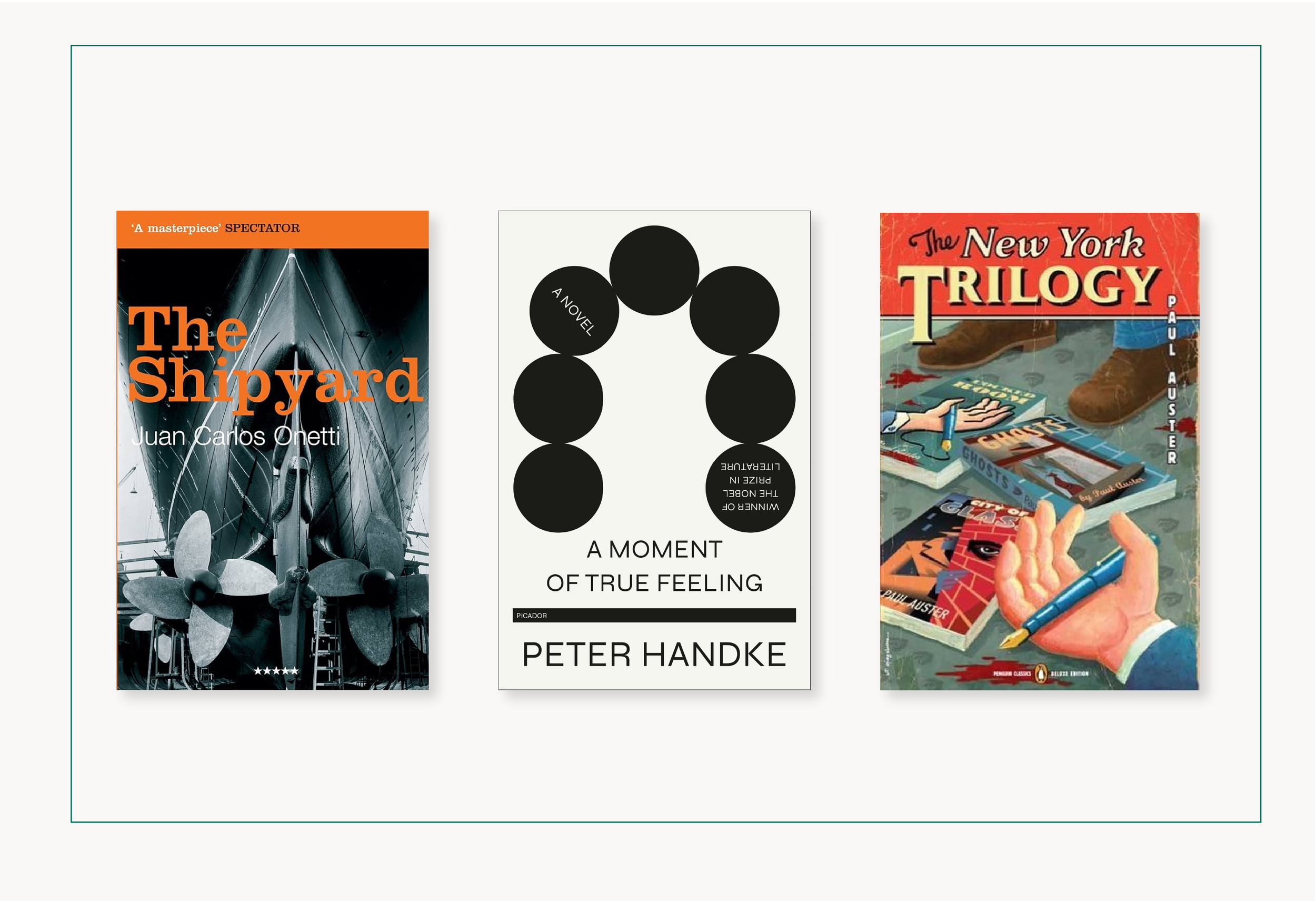Six Overlooked Modern Classics
Our latest list of selections draws upon the Hammock Literary Map - a tool we launched a couple of weeks ago that allows you to discover new authors. We decided to pick out a collection of often forgotten modern classics by authors after exploring the map’s database of 20th and 21st century writers who won or were shortlisted for awards or widely acclaimed over the past fifty or so years.
The Shipyard - Juan Carlos Onetti (1961)
Onetti is one of Uruguay’s most celebrated writers, winning the nation’s literature prize and Spain's prestigious Cervantes Prize. The Shipyard is one of his best known novels, a “totally three-dimensional exploration of the landscape of quiet despair”. The novel follows Larsen, a worker at a shipyard whose sense of reality is shaken by a tremor of self-deception that allows him to believe that the yard's glory is not just a thing of the past. A contemporary of Faulkner and Beckett who has grown in stature over the years, his work is worth looking up.
A Moment of True Feeling - Peter Handke (1977)
Peter Handke is hardly a forgotten writer, considering he received the Nobel Prize in 2019. But the Austrian writer’s achievement drew upon his novels over several decades, including this one. The book follows Gregor Keuschnig, a worker at the Austrian Embassy in Paris who wakes up from a dream in which he committed murder.Though nothing materially changes, he begins to doubt everything. Finding life now predominantly pointless, he wanders the streets of Paris searching for a moment of true feeling.
The New York Trilogy - Paul Auster (1987)
Moving at the breathless pace of a thriller, this uniquely stylized trilogy of detective novels is a perfect introduction to the brilliant work of Paul Auster. Though they are framed as detective stories, these are more meta-tales than anything else, stories that raise questions about identity, language and reality as much as about a specific crime or situation. The three interconnected novels exploit the riveting elements of mystery to achieve a radical existentialist enquiry in the tradition of Kafka or Borges.
Dogeaters - Jessica Hagedorn (1990)
One of the most celebrated books about the Philippines, written by Filipino-American writer Jessica Hagedorn, Dogeaters is an ensemble tale of sorts. With a wildly disparate group of characters - from movie stars to waiters, a young junkie to the richest man in the country, the novel explores how they get caught up in a spiral of events culminating in a beauty pageant, a film festival, and an assassination, among other things. The book is a fascinating portrait of a country that has many parallels to other Asian neighbours.
The Electric Michelangelo - Sarah Hall (2004)
In uniquely sensuous, lyrical prose that she’s known for, Sarah novel is a love story, an exquisitely rendered portrait of seaside resorts on opposite sides of the Atlantic and an ode to tattoo artists, longing and the fringes of society. Following the story of Cy Parks from his childhood years in a seaside guest house to his apprenticeship as a tattoo artist with an alcoholic rumoured Bolshevik, The Electric Michelangelo is a unique and absorbing book.
De Niro’s Game - Rawi Hage (2006)
A Lebanese writer now based in Canada, Rawi Hage made waves with this debut that won numerous awards. Set in civil-war era Beirut, the novel is about childhood best friends who are torn in completely different directions by the chaos of the city during conflict. A powerful meditation on life and death in a war zone, friendship, masculinity, and much more, it deserves to be considered a modern classic.



